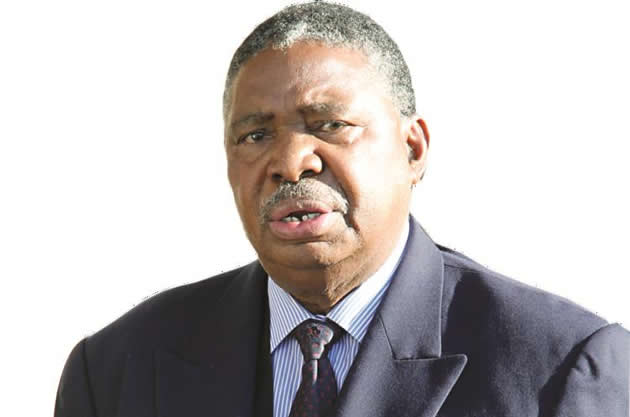Curb brain drain, says VP Mphoko

Tinashe Makichi, Harare Bureau
Vice President Phelekezela Mphoko yesterday implored African countries to harness their human capital resource and set up initiatives to curb brain drain in the continent.
Speaking while officially opening the African Capacity Building Foundation 25th anniversary celebrations, Vice President Mphoko said such capacity- focused organisations should be supported in Africa’s quest to retain the available capacity and human capital resource.
“You’ll all agree with me that building capacities isn’t enough. To the ACBF team and its network, you need to continue building capacities, but more importantly, support countries and institutions in avoiding brain drain by retaining, harmonising and utilising capacity built on the continent,” said Vice President Mphoko.
“African member states should support the ACBF for the implementation of sustainable capacity building solutions that will ensure the continent’s sustainable and inclusive socio-economic development,” he said.
The ACBF was established in 1991 by African governments and their development partners to help build sustainable human and institutional capacity for good governance and development management.
For the past 25 years, the Foundation has achieved a lot in supporting African countries build their capacities.
Vice President Mphoko said African governments and development partners should support the ACBF in the spirit of pan-African solidarity.
“Let’s support ACBF for the implementation of sustainable capacity building solutions that will ensure the continent’s sustainable and inclusive socio-economic development. Future generations will never forgive us if we don’t provide the required support and attention to a pan-African institution like ACBF.
“I’m also urging development partners to support the foundation in its noble efforts of building institutional and human capacities on the continent. We all have a role to play and let’s be part of it with pride,” said Vice President Mphoko.
He said African countries should consolidate the great strides that ACBF has made over the past 25 years in becoming one of the leading capacity development organisations on the continent.
The ACBF has managed to empower professionals and leaders as well as strengthening capacities of Governments, Parliaments, civil society, private and higher learning institutions.
ACBF executive secretary Professor Emmanuel Nnadozie added that there is a need for support from African member states considering the huge capacity gap that still exists in the continent.
He said from the capacity assessment studies done by ACBF around Agenda 2063 it shows that there are huge capacity gaps that need to be addressed if the continent is to achieve its objectives and targets.
“The studies shows that skills shortages in terms of numbers and quality in the region have reached an alarming point, posing a major concern,” said Prof Nnadozie.
He said the continent’s current share of global engineers stands at 35 engineers per one million people compared to 168 for Brazil, 2,457 for the European Union, and 4,103 for the United States of America.
In 2011, over 10,000 medical graduates born or trained in Africa migrated and were registered to practice in the United States alone.
Prof Nnadozie said the continent has only two percent of global doctors though it bears around 24 percent of the global burden of diseases.
Furthermore, in the fields of science and technology, it is estimated that only 28 percent of students are enrolled in these programs with the majority studying the social sciences.
He said the continent accounts for less than 1,5 percent of international scientific journals publications, a percentage that has been declining steeply in recent decades.
ACBF executive board representative of the chair, Dr Shehu Misheu told delegates who attended the anniversary celebrations that African countries should be more pragmatic by focusing on tackling the implementation capacity gaps together with the remaining capacity challenges.
“Those gaps do indeed exist. In fact, our continent faces the key challenge of implementing development priorities and achieving development results, namely with respect to the AU Agenda 2063, the Sustainable Development Goals and the countries’ development strategies.








Comments